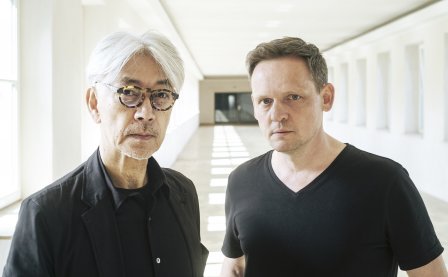A curious dichotomy exists in Unitxt, the latest album from Carsten Nicolai, a.k.a. Alva Noto. Nicolai’s work relies on mathematical processes to govern rhythm (rather than traditional sequencers), utilizing machine noises — modems, telephones, and fax tones — for most of its sounds. On Unitxt, Alva Noto applies these frigid clicks and blips to an innate form of human expression: each track is about 120 bpm, and the rhythms, though often heavily obscured or syncopated, are entirely in 4/4 time — the basic ingredients for a dance album.
Clearly, Unitxt plays differently from Nicolai's previous efforts. It lacks the spacious ambience that characterized For (2006) and Xerrox (2007), and while these albums harbor clear melodies (or at least the semblance of them), the melodic passages on Unitxt are almost entirely absent. Consequently, it sounds more like an extension of the ideas Nicolai explored on his earlier, rhythmically-oriented Trans- EPs, with the droning, granular clouds replaced with pummeling bass, short beeps, and atonal static. It’s all a little colder, more sterile.
Which is ironic, as the album is one of the few (if not the only) Alva Noto releases that feature vocals. French sound poet Anne-James Chaton intones in a robotic manner on two tracks, including opener “U_07.” He reads the contents of Nicolai’s wallet (credit cards, driver’s license, receipts, etc.) in a constant outpour. This only furthers the album’s harshness, reducing personal information about the man to mere information, data to be processed.
None of this is to say that Unitxt doesn’t deliver musically. The rhythms are complex and engaging, and the sound sources he uses are refreshing, especially considering the ever-prevalent 808 and 909-ish software sounds of the dance world. But without significant variation, the album ultimately sounds redundant. Had Nicolai included more melodic elements or varied the structures, this could have been a great release. He has indeed provided a fascinating, innovative approach to dance music — one that I would like to see him develop — but it’s just not quite compelling enough to garner full-fledged attention.
More about: Alva Noto




